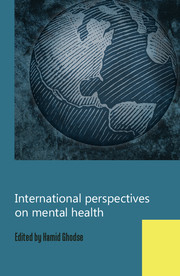Ethiopia
from Africa
Published online by Cambridge University Press: 02 January 2018
Summary
Ethiopia, in the Horn of Africa, is one of the ancient independent nations of the world and has a rich diversity of peoples and cultures. The country covers 1.1 million km2 (Central Statistical Authority, 2000a). It has a population of about 70 million people (Central Statistical Authority, 2002), 80 different ethnic groups and some 200 dialects. Ethiopia is the second most populous nation in sub-Saharan Africa, after Nigeria (Hailemariam & Kloos, 1993). Forty-eight per cent of the population are under 15 years of age and over 80% live in rural areas (Central Statistical Authority, 1995). Islam and Christianity are the main religions.
Ethiopia maintained its independence during the colonial period. Over the past 30 years the country has undergone several manmade and natural disasters, such as war and political turmoil on the one hand, and famine and drought on the other. A federal system of government is now in place: there are nine regional states in the country and elections take place every 5 years.
Ethiopia is one of the least developed and most agrarian countries in the world; its estimated per capita gross national product in 1998 was $100 (Population Reference Bureau, 2000). About 65% of the country's people live below the absolute poverty line (World Bank, 1994). The literacy rate is estimated to be 38% for males and 23% for females (Central Statistical Authority, 2000b).
Health status of the country
The main health problems in Ethiopia are malnutrition and infectious diseases, as has been the case for many years. Life expectancy at birth was recently estimated at 53 years (Ministry of Health, 2002). The crude birth rate is 39.9 per 1000 population per year and the crude death rate is 12.6 per 1000 per year. The infant mortality rate is 112.9 per 1000 live births and the mortality rate for the under-5s is 187.8 per 1000 live births. The maternal mortality rate is estimated at 871.0 per 100 000 live births. Only 28% of the population have access to potable water and 11% to a proper sewerage system. It is estimated that only 60% of the population are able to receive basic health services (Ministry of Health, 2002).
- Type
- Chapter
- Information
- International Perspectives on Mental Health , pp. 12 - 16Publisher: Royal College of PsychiatristsPrint publication year: 2011



